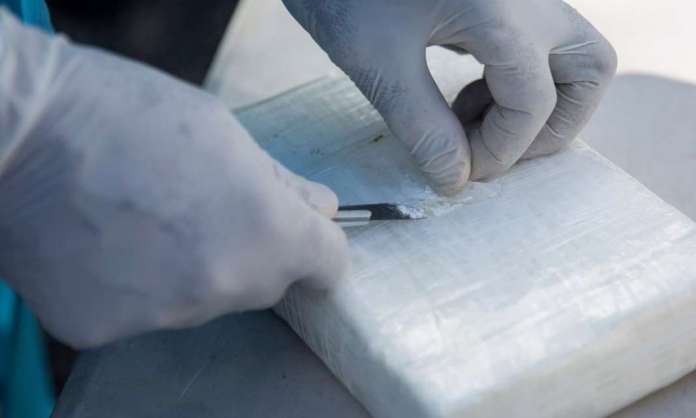In an article entitled “Colombia of Europe: How tiny Albania became the continent’s drug trafficking headquarters”, British newspaper Independent, reveals that marijuana contributes $4 billion a year to Albania’s Gross Domestic Product from illegal drug sales.
The white fishing boat with the green stripe bobs up in down in rough Adriatic waters. Sirens on, the joint Italian-Albanian coast guard zodiacs precariously sidle up alongside, demanding to be let aboard to search the boat’s interior for contraband. The boat operator, dressed in orange jumpsuit, shrugs and complies. Two more guys emerge from the hold, Independent writes.
Once, finding drugs bound for the rest of the Europe inside the boats trawling the sea was simple – just look for the huge bales of cannabis stashed in the cargo hold. But several years ago, the Albanian authorities launched an aggressive eradication effort in the countryside of the small, poor Balkan state, hoping that destroying the cannabis fields and arresting some of the growers would decrease the power of the traffickers, rid the country of its pariah status, and help ease its entry into the European Union.
Instead, it only convinced the traffickers to graduate into a more lucrative and deadly game. Now a million dollars’ worth of cocaine could be hidden in a small crevice or hidden compartment of a fishing boat. And traffickers now use the same networks they established to move vast amounts of bulky cannabis to distribute cocaine from Latin America and heroin from Central Asia via Italy to the rest of Europe.
Albanian gangs are considered among the world’s top heroin, cocaine and cannabis traffickers. Both US and European law enforcement officials have described Albania as the largest provider of cannabis to the EU, as well as an important transit point for heroin and cocaine. Based on the value of drug seizures, some estimate that the marijuana alone generates up to $4bn (£3bn) a year, half of Albania’s GDP.
“The Adriatic Sea is now a highway for drug trafficking,” says Xhemal Gjunkshi, an opposition member of the Albanian parliament and a former army officer.
The coast guard officials, who asked that their names not be published during a rare foray out to sea with journalists, say they must be careful. The traffickers are often armed with assault rifles, though they have yet to use them against the coast guard.
“The years 2015 to 2016 were terrible,” says a ranking coast guard official. “It was Colombia.”
The white fishing boat with the green stripe is searched, and allowed to go on its way.
Occasionally, the coast guard – often collaborating with the EU’s Frontex border patrol forces – gets lucky. Last January, it found 1.5 tonnes of cannabis beneath a tarp on a boat. In recent months, hundreds of kilogrammes of cocaine were discovered hidden in bananas imported from Colombia.
More often the drugs slip by. Albanian officials concede that they only intercept 10 per cent of drug shipments in and out of the country. One Western diplomat said the number was more like 5 per cent, leaving traffickers with enough wealth to buy up port authorities from Rotterdam to Izmir.
“The sophisticated trafficking groups have gotten so powerful that they have networks all over the world,” says Alfonc Rakaj, a Tirana-based researcher and consultant focused on Albania and the western Balkans.
“They are very good at managing networks throughout the world – from Latin America to Western Europe. And it’s quite clear that all these gangs operate with a certain level of political and police protection and support.”
In just a few years, say diplomats and officials, Albania has become the narcoticstrafficking headquarters of the continent, and many fear the money has thoroughly infected the political elite, making it harder to shake off even with the lure of EU membership.
“It’s the Colombia of Europe,” said one Western diplomat. “It’s the drug producer and distributor of Europe. It is a narco-state, and they’d lose too much money getting out of trafficking to get into the EU.”
The drug trade is etched into the very skylines of the country’s main cities, including the capital, Tirana, and the port cities of Durres and Vlora. On paper Albania has one of the poorest economies in Europe, with a miserly banking sector tight with credit.
On the ground, Albanian cities are undergoing a massive construction boom with gleaming office and residential towers and shopping centres rising, with fancy new retail outlets.
Young beefy guys driving around town in late-model Humvees playing Albanian and American gangster rap. One of the biggest hits in Albania in recent years became a song called “Cocaina”, which likens a beautiful woman to quality blow.
“Albania is no longer a hub of cultivation,” said one EU official. “It’s become a centre of investment, distribution, and recruitment.
More at Independent






Comments are closed for this post.